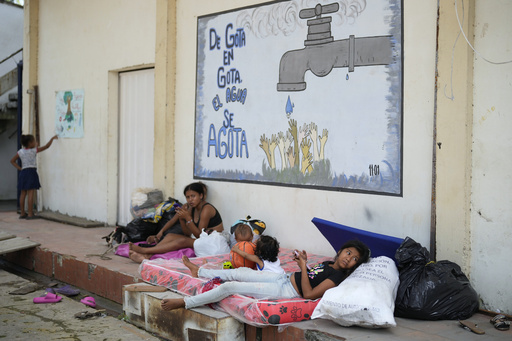BOGOTA, Colombia — On Monday, Colombian President Gustavo Petro announced plans to declare a state of emergency in response to a series of guerrilla assaults in the northeast that have resulted in numerous fatalities and displaced thousands of residents from their homes.
In a statement on X, Petro indicated that he intends to declare a “state of internal commotion,” a measure that grants the executive authority to enact certain legislative actions without the need for congressional approval for a duration of three months. This measure will come into effect following a decree that must be signed by the president along with his Cabinet; however, it is subject to invalidation by Colombia’s constitutional court.
Such decrees for internal commotion were previously employed in the early 2000s by former President Álvaro Uribe to secure increased funding for the military via a designated war tax. It is important to note that under Colombia’s constitution, this emergency measure is prohibited from being used to dissolve congress or infringe upon civil liberties. “I hope the judicial system supports us,” Petro expressed through his message on X.
Earlier in the day, Petro had cautioned that Colombia’s military would undertake offensive operations against the National Liberation Army (ELN) following a series of attacks in the Catatumbo region, an area where at least 80 lives have been lost.
“The ELN has opted for war, and they will get a war,” Petro asserted in a message on X, accusing the insurgents of morphing into a drug trafficking organization and likening their tactics to those of the infamous Pablo Escobar, the notorious drug lord known for bombing government edifices and employing a network of hired killers to eliminate adversaries.
Having once been a member of a guerrilla faction during his youth, Petro began peace discussions with the ELN in 2022, promising to facilitate the rebels’ demobilization within three months of assuming the presidency.
Nevertheless, these conversations have stalled due to various disagreements concerning the rebels’ disarmament processes and the government’s proposed economic reforms to be exchanged for disarmament. The ELN has condemned the administration for pursuing separate negotiations with a splinter group in southwestern Colombia, while also causing outrage among officials with its ongoing kidnappings of civilians and extortion of businesses.
On Friday, in light of escalating violence in Catatumbo, Petro declared a suspension in negotiations with the ELN. This mountainous region, which accounts for around 15% of Colombia’s coca production, shares a border with Venezuela.
The ELN, believed to have around 6,000 fighters, reportedly targeted civilians accused of being affiliated with a rival faction, the FARC-EMC, leading to abductions and shootings in public spaces, along with armed confrontations in rural areas involving both groups.
In a statement released on Monday, ELN leader Antonio García claimed that the organization does not aim to harm civilians but is instead pursuing former rebel fighters who have allegedly allied with the FARC-EMC.
Over the weekend, however, the rising violence compelled thousands to flee Catatumbo, fearing for their safety, including community leaders who had received threats from the ELN. Many among those fleeing were former members of the Revolutionary Armed Forces of Colombia, who had disarmed as part of a peace deal in 2016, but are now being targeted by the ELN.
According to the United Nations Office for the Coordination of Humanitarian Affairs in Colombia, the recent surge of violence in Catatumbo has displaced approximately 18,300 individuals, who are now seeking refuge in shelters and hotels located in Tibu, Ocaña, and Cúcuta, where officials warn of a potential humanitarian crisis.
Sandra Tijaro, a farmer from northeastern Colombia, shared her story of fleeing her village on Friday after armed men ordered residents to evacuate. She is currently staying at a shelter in Tibu with her children.
“We want the armed groups to think about the welfare of rural people,” Tijaro remarked. “We are diligent individuals who end up shouldering the consequences of this conflict.”
The peace agreement reached in 2016 between the Colombian government and the Revolutionary Armed Forces of Colombia led to the disbanding of 11,000 combatants. However, it inadvertently created a power void in several rural regions, which smaller rebel factions have sought to exploit, leaving the government grappling with the rise in violence against civilians.



